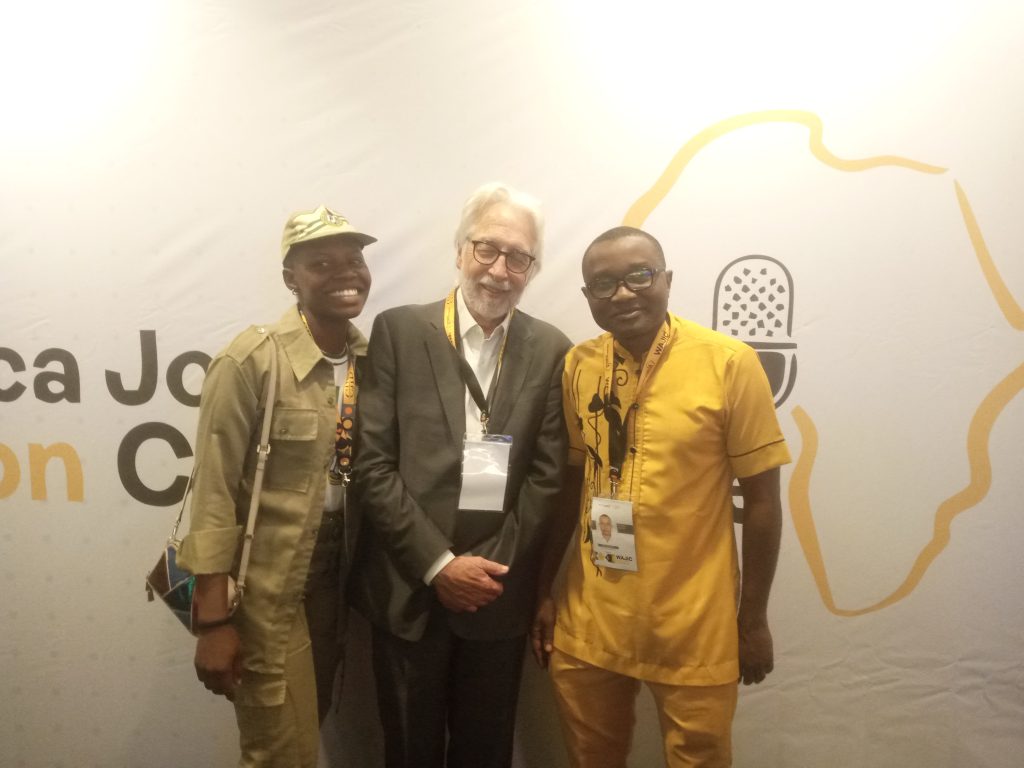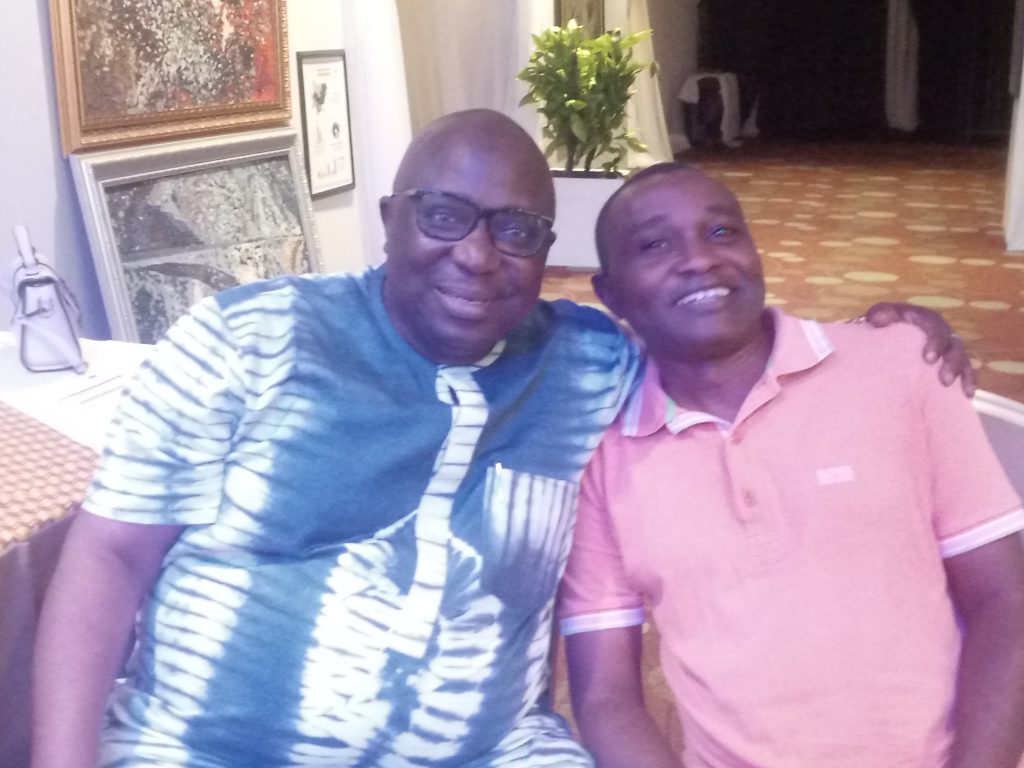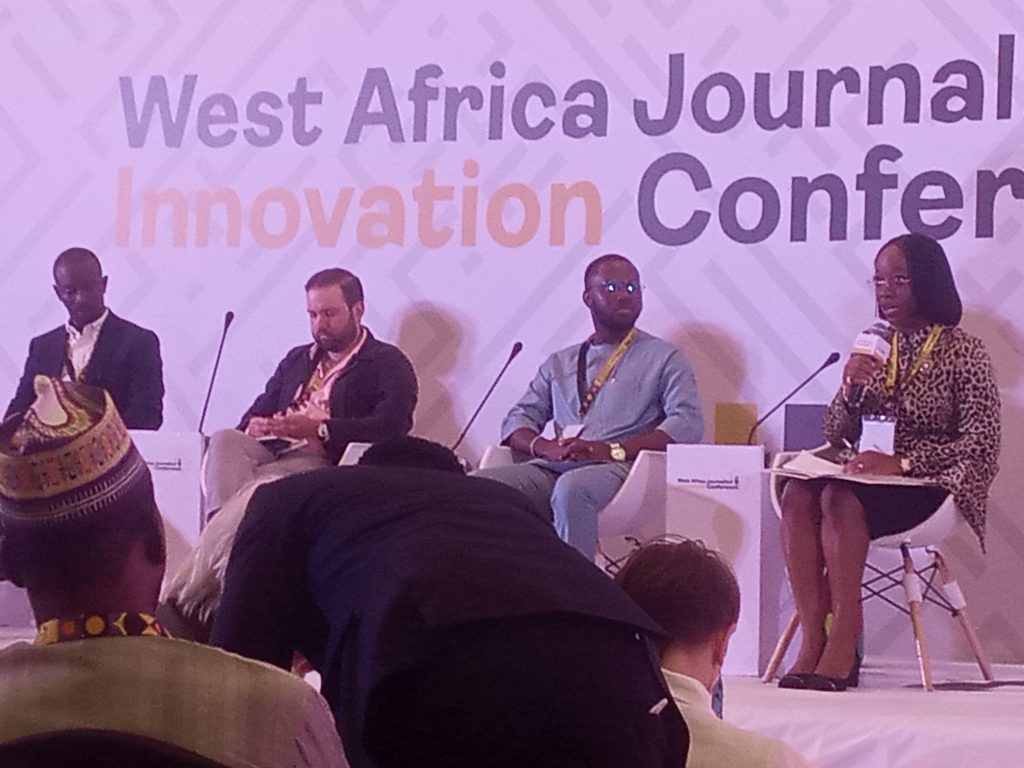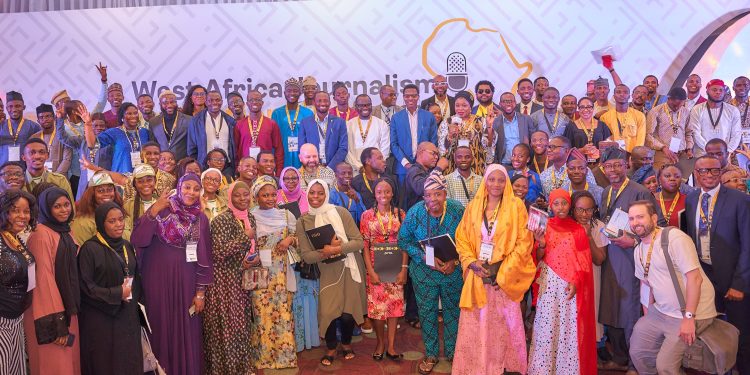By Omotayo Ayanda
The inaugural West Africa Journalism Innovation Conference (WAJIC) held from 24th to 26th July 2023 was a resounding success, as media professionals and stakeholders gathered to discuss the pressing challenges facing journalism in the region.
Themed “Accountability Journalism: Nurturing Innovation for a Sustainable Future,” the conference emphasized the crucial role of innovation and collaboration in promoting ethical reporting, media literacy, and media sustainability.
Organized by the Centre for Journalism, Innovation and Development (CJID), the event brought together experts in journalism practice and academia, advocating for increased cooperation between journalists and educators to enhance the training of future journalists.
Throughout the conference, speakers underscored the importance of embracing digital innovations and AI tools to advance journalism’s purpose and efficiency.
Richard Gingras, Vice President (News) at Google, delivered the keynote address, emphasizing the need to develop better models for generating constructive content using generative AI. He stressed that technology is a driving force for journalism and urged journalists not to fear it but to leverage AI tools to meet the diverse needs of their audiences effectively.

Additionally, participants highlighted the significance of media sustainability and the need to explore multiple revenue sources for independent media outlets.
Dr. Kole Shettima, Africa Director of the MacArthur Foundation, reaffirmed the organization’s commitment to supporting media organizations in Nigeria and promoting accountability journalism. He emphasized that independent media is crucial for democracy to thrive and called for media outlets to be financially resilient to uphold their role as watchdogs of society.
The Board Chairman of CJID, Prof. Umaru Pate who is also the Vice Chancellor Federal University, Kashere, Gombe state challenged media practitioners in West African region to come out with innovations that would sustain them in the global trend.
Prof. Pate maintained that the future of journalism is in audio, video and tapes, and charged the practitioners to innovate in technology for them to meet the changing needs of audiences at different level, stressing that coming out with ideas can enable them to survive in the new world of digitalization.
Despite the push for innovation and sustainability, concerns were raised about the troubled state of journalism in the region. The crisis in the media business model and declining audience trust were highlighted as pressing challenges.
Dapo Olorunyomi, Premium Times Publisher and CEO of CJID, viewed the conference as an opportunity for media organizations to address these challenges effectively. He stressed that innovation is the pathway to renewal and called for an effective response to the realities faced by the media industry.

Meanwhile, media literacy and ethical reporting were among the key themes discussed at the conference. Experts called for collaboration between journalism practitioners and educators to enhance the training of future journalists.
Prof Audrey Gadzekpo from the University of Ghana highlighted the importance of researching audience preferences and behaviors due to their diversity. She emphasized investing in research tailored to the region’s needs for adopting technologies and addressing emerging challenges in the media industry.
During the conference, the significance of partnerships and collaborations with independent content creators for media sustainability was underscored. WAJIC ’23 advocated for increased collaboration among media professionals, educators, and civil society organizations across West Africa. The conference highlighted the power of partnerships and emphasized the importance of understanding audience consumption behavior to create relevant and impactful content. Media experts stressed that co-creating content with the audience and sharing revenue are essential elements for media sustainability.
Rosemary Egabor-Afolahan, Head of Commercials at News Central TV, stressed the need to understand the target audience’s consumption behavior and co-create content with them. Sharing revenue with content creators and engaging in audience-centric strategies were identified as crucial elements to achieve media sustainability.

Joshua Olufemi, Founder and Publisher of Dataphyte, advocated for journalists to embrace AI tools to drive the purpose of their work and not to fear technology. He urged journalists to explore how these tools could satisfy the audience’s needs.
“We must acknowledge the significance of technology as a driving force for our work and a means to overcome challenges,” Olufemi said.
Participants also discussed the challenges of funding accountability journalism platforms and the need for long-term investments to ensure media organizations can withstand the changing media landscape. Experts emphasized the role of good management and adopting sustainable business models to sustain the revenue base of media platforms.
Speaking about the role of an independent press in sustaining democracy, Toyin Akinniyi, Africa Co-Director, Luminate, said a free and vibrant press play a huge role in enhancing and sustaining democracy. He urged the media to remain committed to its role of engendering social cohesion.
On her part, Toun okewale-Sonaiya, the CEO of Women Radio, said the media should remain committed to hold the government accountable, as it is their responsibility.

Okewale-Sonaiya explained that if the media doesn’t play its role of holding the government accountable effectively, it will lose its value and worth.
Grace Jerry, the Executive Director of Inclusive Friends Association (IFA) and Jake Epelle, the Executive Director of TAF Africa had earlier called for the inclusion and mainstreaming of disability issues in media reportage.
The duo believe that the increasing population of over 35 million Nigerians cannot be exempted in conversations that affect them, and as such, they should not be underrepresented in the media.
On his part, Mr Adekunle said the inability of media owners to articulate the problems remains the crux of the issue.
He said many founders do not, at inception, understand the challenge before them, not to talk of how to solve them.
“Many people say there is a dearth of reporting in an area, and then they get a team together –some people are so passionate they start doing it themselves, and they start reporting,” he said. “However, by the time they want to expand on that and pay the salary, it becomes a problem.”
Also speaking, Mr Aigbogun said media platforms need good managers who would adopt good business models to sustain the revenue base of the organisations.
“I don’t think it is good to think or suggest that a bank should be better managed than any media organisation,” he said. “They both demand and deserve top-level management. You need to have good management and a good business model…You need to be sure that your organisation is being managed properly.”
He added that media platforms need to look inward beyond advertisement and philanthropist funding, which he said is unsustainable.

The West Africa Journalism Innovation Conference (WAJIC) 2023 served as a pivotal event in the region’s journalism landscape. It brought together media practitioners, academics, policymakers, and media rights groups to address the challenges facing journalism and explore solutions through innovation and collaboration. The conference highlighted the pressing need for West African journalists to embrace digital innovations, AI tools, and technology to foster media sustainability and promote democratic values. As the outcomes of WAJIC ’23 continue to inspire and drive improved productivity in journalism, the future of ethical reporting and media sustainability in West Africa looks promising.
